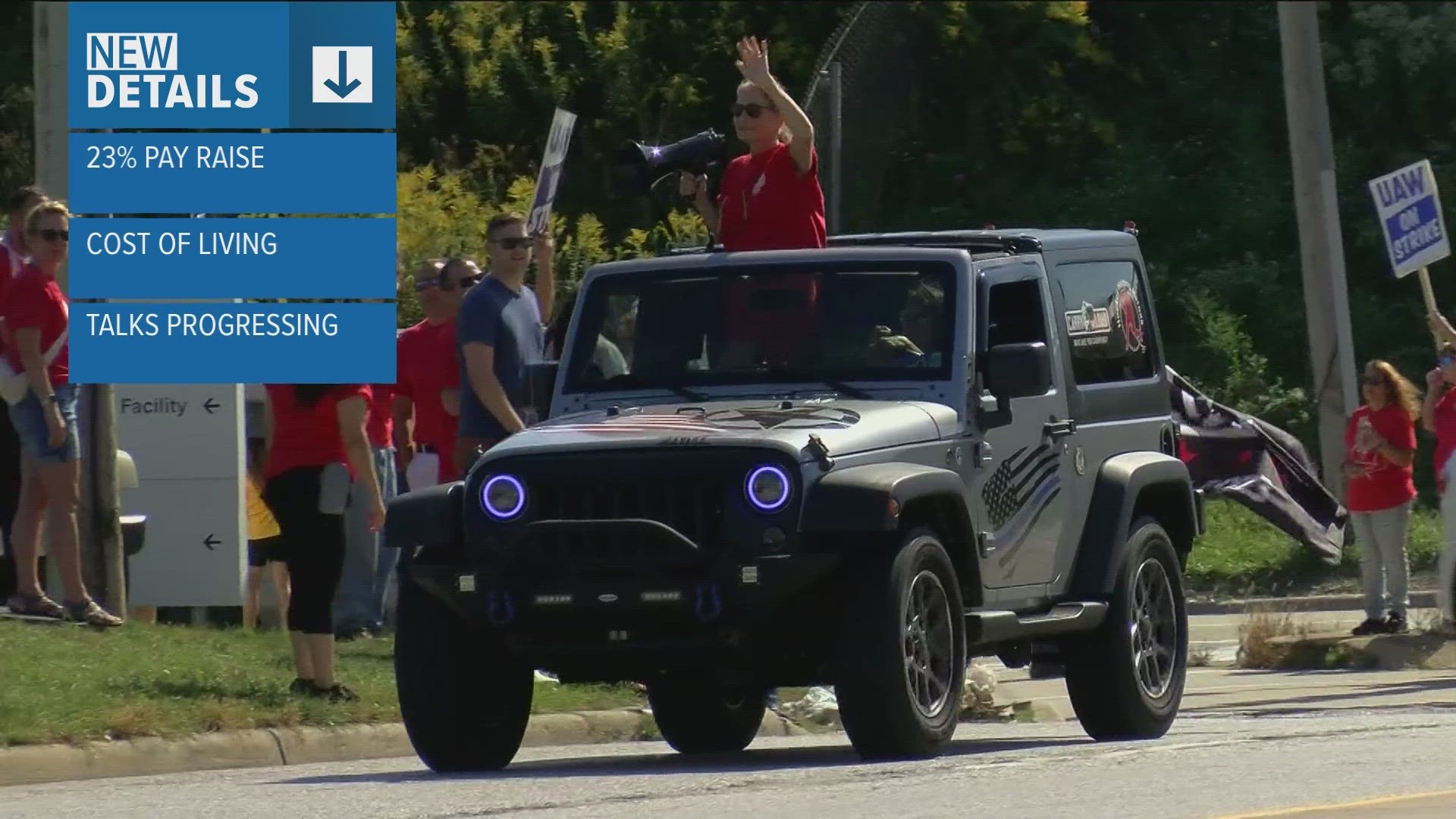TOLEDO, Ohio — In Friday afternoon's livestream, United Auto Workers President Shawn Fain celebrated the developments he said had been made with the Big Three automakers in the last three weeks of the ongoing UAW strike, including breaking developments with General Motors.
At the start of the livestream, Fain said they had developments in negations for the second week in a row. Fain said GM had agreed to place their electric battery manufacturing under the UAW national master agreement. According to Fain, UAW was planning to call on the GM plant in Arlington, Texas to go on strike. Following the GM negotiation, they will not be called on to strike.
Fain also said Ford and Stellantis have made commitments to include a "cost of living allowance" in their contracts, and "GM isn't far behind." He also discussed developments in profit sharing, the rate at which workers receive top-tier pay, job security and more.
"We don't strike for the hell of it," Fain said.
Wearing an "Eat the Rich" shirt, Fain touted what he described as the power of the working class, and claimed the "billionaires and company executives think [the] autoworkers are just dumb."
"They think we don't get it," he said. "They think we only understand the power of a supervisor yelling at us, or an assembly line coming at us. They look at me, and they see some redneck from Indiana. They look at you and see someone they'd never have over for dinner, or let ride on their yacht, or ride on their private jet. They think they know us. But us auto workers know better."
Instead of announcing a fourth round of strikes, Fain said UAW members would hold a "stand up rally" in Chicago, where workers went on strike last week.
The union has said it will continue to expand its "stand-up" strike to additional facilities as long as talks with each of the three big Detroit automakers do not lead to fair contracts.
Workers have noted the record profits in the auto industry in recent years and demanded pay raises of 40% over four years, an end to tiered wage systems that pay newer employees less, restored pension benefits, a 32-hour work week and better profit sharing. Stellantis, Ford and General Motors have said the workers' demands would make it impossible for the companies to compete in a global industry, especially as they must invest in new electric vehicle models.
When talks with Detroit's Big 3 failed to yield contracts by Sept. 15 -- when the previous contracts expired -- the UAW president announced workers at three plants would immediately strike. Jeep's Toledo Assembly Complex was among these first targets, as were a GM factory in Wentzville, Missouri, and a Ford plant in Wayne, Michigan, near Detroit. The nearly 6,000 workers at Toledo's Jeep plant have remained off the job since then.
A week later Fain announced the strike would expand to include workers at 38 General Motors and Stellantis parts-distribution facilities in 20 states. Ford was spared in this expansion, Fain said, because talks with that automaker had turned productive.
On Sept. 29, the UAW expanded the strike again, adding 7,000 more workers at a Ford plant in Chicago and a General Motors assembly factory near Lansing, Michigan. The expansion meant that about 25,000 workers -- or roughly 17% of the unions’ 146,000 members -- are now on strike across the country.
More on WTOL:

